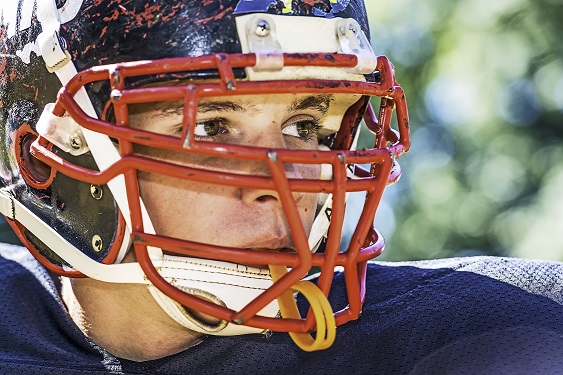Imagine what it would be like if you suddenly lost one or two of your front teeth. Not only would it hurt, but also smiling, eating, and talking would be greatly affected. Knowing how to prevent injuries to your mouth and face is especially important if you participate in organized sports or other recreational activities.
Mouth guards, also called mouth protectors, and other types of protective gear can prevent or reduce injuries that happen during organized and recreational sports. They offer protection by absorbing high-impact energy from potentially traumatic blows.
Do we need to worry about sports injuries on our teeth?
Here are some hard hitting facts about kids and sports-related injuries:
- About 80 percent of traumatic dental injuries occur to the two front teeth
- Injuries can happen at any age or skill level
- Baseball, soccer, basketball and football account for about 80 percent of all sports-related emergency room visits for children between the ages of 5 and 14
- A single traumatic injury to the teeth may never heal completely, and it can create a lifetime of expensive, long-term problems for the affected individual
- Hard hits occur no matter the sport
As striking as the above facts are, mouth guard use is very low. 67% of parents surveyed by the American Association of Orthodontists said their child does not wear a mouth guard, yet 70% said their biggest fear is their child will get hurt when playing organized sports! Additionally, coaches can make a difference, but many fail to promote mouth guard use during practice and competitions.
When should you wear a mouth guard?
A mouth guard is an essential piece of athletic gear that should be part of your standard equipment from an early age.
What are different types of mouth guards?
- Custom made: Custom made from a full-mouth impression taken in the dentist’s or orthodontist’s office and sent to a dental lab for fabrication.
- Pros: optimal protection, as well as best fit and premium comfort
- Cons: more expensive than commercial mouth guards
- “Boil-and-bite”: Mouth guard formed by boiling in hot water and then letting it adapt to the shape of your teeth and mouth.
- Pros: cost effective, better fit than stock mouth guards, easy to find at most department stores
- Cons: they tend to wear down faster, needing to be replaced during the season, and they don’t fit as well.
- Stock: Commercial, rubber mouth guards that are pre-formed and come in small, medium and large sizes.
- Pros: inexpensive, easy to find at most department stores
- Cons: poor fit, affecting breathing and talking, and they stay in place only when mouth is closed.
What if you already have braces?
A properly fitted mouth guard is especially important for people who wear braces. A blow to the face could damage the brackets or other fixed orthodontic appliances. A mouth guard also works as a barrier between the braces and your cheek or lips, which will help you avoid injuries to your gums and cheeks.
Parents of children in orthodontic treatment should talk with their orthodontist about the recommended mouth guard to wear during orthodontic treatment.
Mouth guard care and maintenance tips:
- Keep your mouth guard clean – rinse before and after each use.
- Store in a perforated container to let your mouth guard dry out.
- Avoid chewing on the mouth guard.
- Don’t wear removable retainers with your mouth guard.
- Replace your mouth guard when it shows signs of wear.
Taking care of your smile should be important. Let us be part of the team that gives you a smile you can trust and believe in!
Schedule a Free Consultation today!
Do you have questions about how to best take care of your braces? We can answer your questions to keep your teeth and gums healthy – schedule a free consultation!
Contact us online at http://hudecdental.com/ortho-appointment/ or call 216-325-0822 opt 4.
Stay connected with us on social media!






